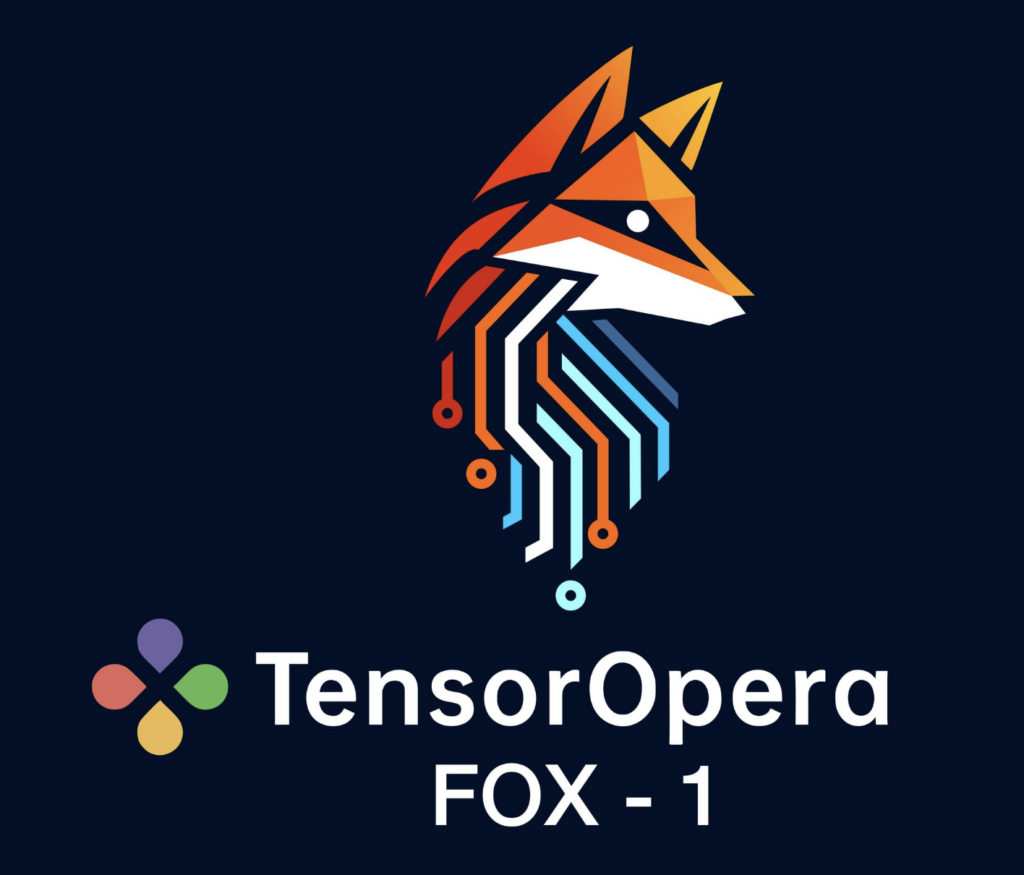TensorOpera announced the release of its groundbreaking small language model, Fox-1, via an official press release. This innovative model represents a major step forward for small language models (SLMs) and establishes a new benchmark for scalability and performance in generative AI, especially in cloud and edge computing applications.
Fox-1-1.6B boasts a 1.6 billion parameter architecture that sets it apart from other SLMs with its superior performance and efficiency. The model is meticulously designed to meet the needs of developers and enterprises looking to deploy AI in a scalable and efficient manner, outperforming similar models from industry giants such as Apple, Google, and Alibaba.
A key feature of Fox-1 is its integration into TensorOpera’s AI and FedML platforms, which makes it easier to deploy, train, and create AI applications across a variety of platforms and devices, from high-performance GPUs in the cloud to edge devices such as smartphones and AI-enabled PCs. This versatility highlights TensorOpera’s commitment to delivering a scalable, generative AI platform that increases ownership and efficiency across diverse computing environments.
SLMs, including Fox-1, offer several advantages over large language models (LLMs). SLMs are designed to operate with significantly lower latency and require less computational power, making them ideal for resource-limited environments. This efficiency translates into faster data processing and reduced costs, which is important for deploying AI in a wide range of settings, from mobile devices to server-limited environments.
Most notably, Fox-1 is embedded in composite AI architectures such as Mixture of Experts (MoE) and model federation systems. These configurations leverage multiple SLMs in concert to create more powerful systems capable of handling complex tasks such as multilingual processing or predictive analytics from diverse data sources.
Fox-1’s architecture is a decoder-only Transformer-based model with 1.6 billion parameters, trained on a comprehensive dataset containing 3 trillion tokens of text and code data. The model design includes Grouped Query Attention (GQA) to increase the efficiency of query processing and significantly improve inference latency and response times. This advanced architectural design enables Fox-1 to outperform competitors on standard benchmarks, demonstrating its robustness and capability.
Performance evaluation reveals that Fox-1 outperforms various benchmarks such as ARC Challenge, HellaSwag, TruthfulQA, MMLU, Winogrande, GSM8k, etc. Fox-1 consistently outperforms models such as Gemma-2B, Qwen1.5-1.8B, StableLM-2-1.6B, and OpenELM1.1B, performing well despite having fewer parameters than some of the models.
In terms of inference efficiency, Fox-1 shows excellent throughput, achieving over 200 tokens per second on the TensorOpera model serving platform. This high throughput is due to the efficient architectural design, especially the GQA mechanism. Fox-1’s memory efficiency is also suitable for on-device deployment, requiring significantly less memory than comparable GPUs.
The integration of Fox-1 into TensorOpera’s product suite enhances its versatility, enabling seamless deployment and training across cloud and edge environments. This integration enables AI developers to leverage the comprehensive capabilities of the TensorOpera AI platform for cloud-based training, and then deploy and personalize these solutions on edge devices via the TensorOpera FedML platform. This approach provides cost efficiency, enhanced privacy, and personalized user experiences.
In conclusion, TensorOpera’s Fox-1 is a pioneering model in the SLM field, setting new standards in performance and efficiency. Its versatile integration into cloud and edge platforms makes it a powerful tool for developers and enterprises looking for scalable AI solutions. TensorOpera is releasing a basic version of Fox-1 under the Apache 2.0 license to encourage broad adoption and make it freely usable for production and research purposes. An instruction-adjusted version is also in development, which is expected to provide even greater capabilities.
Check out the model and learn more. All credit for this work goes to the researchers of this project. Also, don’t forget to follow us. twitter Join our Telegram channel and LinkedIn group If you like what we do, you’ll love our newsletter.
Don’t forget to join our 47,000+ ML subreddits
Check out our upcoming AI webinars here
Asif Razzaq is the CEO of Marktechpost Media Inc. As a visionary entrepreneur and engineer, Asif is committed to harnessing the potential of Artificial Intelligence for social good. His latest endeavor is the launch of Marktechpost, an Artificial Intelligence media platform. The platform stands out for its in-depth coverage of Machine Learning and Deep Learning news in a manner that is technically accurate yet easily understandable to a wide audience. The platform has gained popularity among its audience with over 2 million views every month.
🐝 Join the fastest growing AI research newsletter, read by researchers from Google + NVIDIA + Meta + Stanford + MIT + Microsoft & more…
Source link

